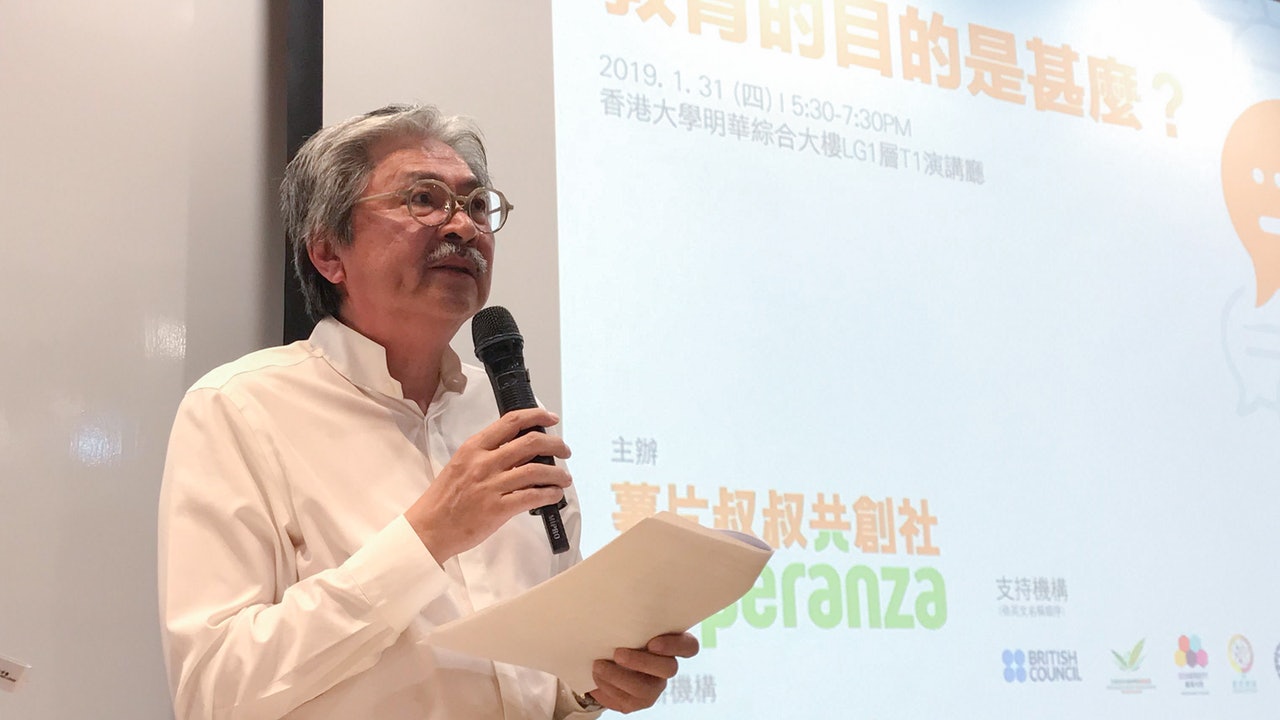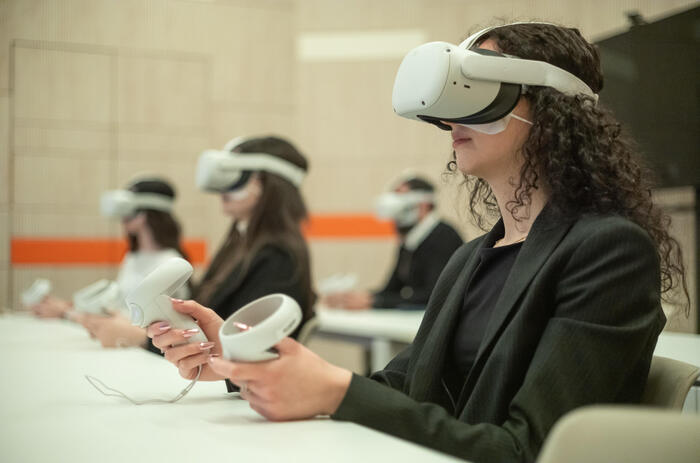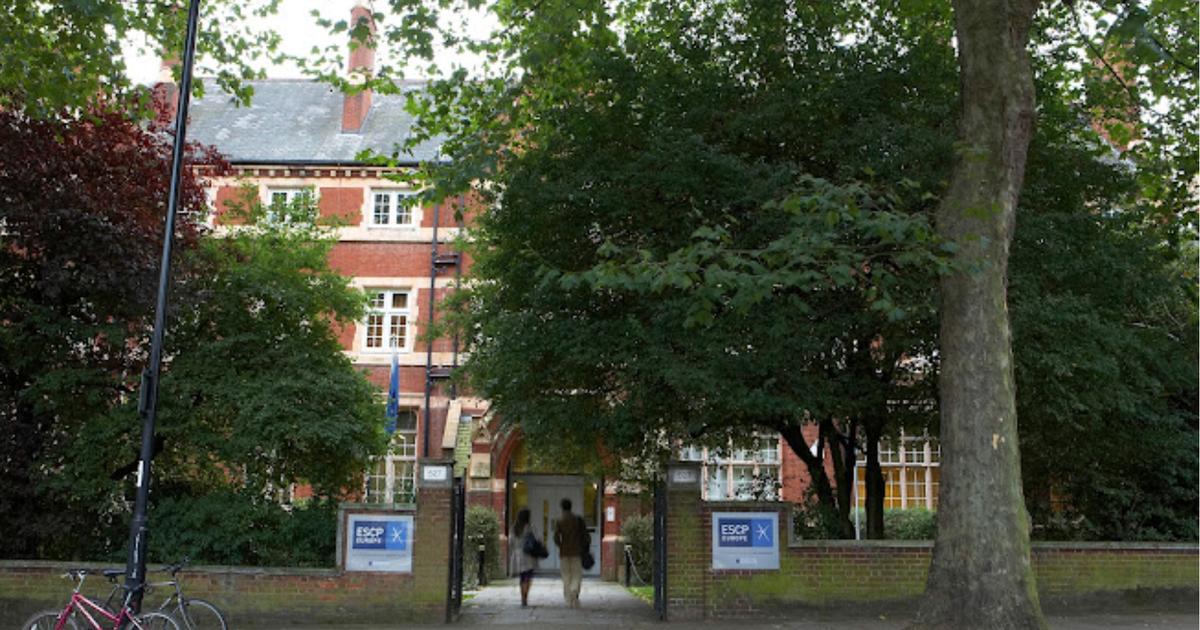Financial News
Author: Zeng Junhua
2020-09-07 07:00
Last update date: 2020-09-07 07:00
About the author: He has served in the government for 35 years, former Financial Secretary John Tsang (John), whose image of uncle potato chips is deeply rooted in the people.
After the self-willed John "snap the guns", he has no fixed position and enthusiastically participates in different activities.
In addition to founding the non-profit organization "Uncle Potato Chips Co-Creation Society", he is also the host of commercial radio music programs and the fencing coach of La Salle College.
In recent years, as Bowtie's senior consultant, he has played the role of future builder.
His vision is that all Hong Kong people can be protected and truly enter a new era of self-protection.
[A series of articles written by John will meet with readers on "Hong Kong 01" every Monday morning.
】
Education can be called one of the "most conservative industries".
Anyone who was born and raised in Hong Kong must have tried rote memorization.
Unexpectedly, from the time when I was studying, to 2020, half a century later, some students in Hong Kong were still required to study by the method of "moving words and papers".
Traditional teaching is not undesirable, but we should not settle for this learning model that has been used for generations.
Many schools are now experimenting with the "Interactive Campus" model, but the actual operation is the same as usual. Students take the same course, answer the same test paper, and use the test scores to judge the level.
Can we use other more flexible and vivid methods to expand the knowledge inventory in students' minds?
Earlier in April, I collaborated with Ding Ding on the song "I want to go back to school" to encourage students who felt that classes would be resumed indefinitely.
([Link: https://www.youtube.com/watch?v=ga1fi-5C76U])
The embryonic form of Hong Kong's "cracking duck teaching" can be traced back to the industrial revolution.
With the collapse of the feudal system, trade patents that originally belonged only to nobles and landlords were opened to the common people, prompting the birth and development of free trade.
In order to seize the huge market opportunities, the society has begun to "efficiency".
A school is like a factory that produces talents in batches. Various exams and tests are Quality Control for students-those who meet the standards will be selected for the next round of screening, and those that are higher or lower than the average will be discarded. Either pass the blunder, and won't get extra attention because of the difference.
It is not unreasonable for Hong Kong to implement "cracking-duck teaching" in the early days. However, today’s world is changing rapidly. If we continue to use the consistent teaching model to nurture the next generation, it will probably wipe out the ability and enthusiasm that our students should have and make them unable to compete internationally. Show advantage on the big stage.
Many entrepreneurs and friends have shared with me the troubles of "inviting people". In the past, assessing whether a job applicant is eligible, only focused on whether he has a degree and a diploma that proves the ability to work, but in the current VUCA generation — Volatility (easy Degeneration, Uncertainty, Complexity and Ambiguity. Whether the job applicant is Open-minded and Willing to Learn is the most important.
Now the company does not need to be a "student hegemon", but instead needs a talent who can provide the company with a future development path.
Zeng Junhua pointed out that today's enterprises no longer need "study hegemony", but instead need a talent who can provide the company with a future development path.
(Provided by the author)
The well-known educational game expert Marc Prensky proposed the concepts of "Digital Natives" and "Digital Immigrants" as early as 2001.
“Digital immigrants” grew up in a predictable, low-tech environment since they were young. When society is rapidly digitized, they must learn the second language of “digital” from scratch in order to survive; in contrast, “digital natives” born in the digital age "Since they were young, they have learned to use a tablet to select the information they like.
Facing the "evolution" of mankind, if we want to hold on to the key to success, we need to actively change our mindset and thinking. Not only should we not refuse to change, but also we must embrace a creative future with a mentality of growing together.
The American philosopher and futurist Buckminster Fuller put forward the "knowledge doubling curve" view.
He pointed out that before the 19th century, the human knowledge base would double every 100 years.
Today, the frequency of "doubling knowledge" has been reduced to once every 13 months.
Technology giant IBM even believes that when the Internet of Things (IoT) technology matures, the world's knowledge base will be updated every 12 hours.
How to help students effectively acquire new knowledge and continue to equip students with new skills will be an important topic.
We may wish to refer to the "Blended Learning" model adopted by many foreign universities.
Through the combination of online and offline teaching, students can learn more independently, play the leading role of teachers' guidance and inspiration, and at the same time encourage students to summarize their own knowledge and fully train their initiative, enthusiasm and creativity.
Aim to impart hard knowledge, but not neglect the cultivation of soft skills.
In this age of technological development, continuous learning is especially important.
The biggest challenge for modern people is to adapt to the new environment. We must use new technologies to solve problems and crises that we could not handle in the past.
With the advancement and popularization of science and technology, the possibilities for future learning are endless.
Instead of being afraid of technology taking over our lives, we should ask ourselves how we can use technology to change education, equip the next generation, and create greater value for society.
Zeng Junhua pointed out that technology should be used to change education, equip the next generation, and then create greater value for society.
(Provided by the author)
Tsang Junhua Column|Stability is the fuse of failure, fear of change is not a good strategy for self-preservation
Zeng Junhua Column|Listen carefully to your subordinates’ feelings, don’t be annoying Old Seafood
Zeng Junhua Column|Living in the future world of God as Akira To master the future, you need to embrace wisdom
Zeng Junhua Column|Embracing the Spirit of Taiping Mountain in the Epidemic Situation, Actively Seeking Change, Control the Way Forward and Deal with the Future
Tsang Junhua Virtual Insurance License Virtual Insurance









